Whether Comprehensive NonClinical Career Transition Management, fluid and responsive consulting support or creating specific materials for your transition, I'll always begin by learning about who you are, what you want to do and what motivates you to change.
My process isn't unique. It's what you do with patients every day. It's about establishing a diagnosis that allows me to treat and to advise, to help you achieve your nonclinical career goals.
Critical Steps to Successful NonClinical Career Transition
Yes, let's begin with a diagnosis - a CareerDiagnosis™. Regardless of what work you wish to contract for, I will begin with a focus on establishing your diagnosis - that is, what you really want to do. I may conduct comprehensive objective testing, ask a series of structured question or simply discuss with you why you want to do what you're saying you wish to do. Regardless of my approach, my goal remains to create as much clarity and focus as possible to define your career/job target and objectives.Next, we'll plan your NonClinical Career Transition. Again, the scope and focus of this work is contingent on what type of service or services you have decided to contract for. At a comprehensive level, this will include several weeks of developing materials to support your CareerDiagnosis. At other working levels, several meetings may be required to map out a combination of strategy and appropriate supporting documentation. Or for specific work products from my Client Services list, we will spend as much time as necessary to discuss how the work you're requesting will fit with and support your overall objectives.
Now let's move to treatment or implementation. My implementation objective is both simple and unique. I want to help you get into the same room, whether literally or virtually, with the people you want to work with. I want you to have the opportunity to present yourself as a solution to solving their problems or accomplishing their objectives.
To do that, I'll help you present yourself as an expert in whatever job or career field you wish to enter. It's simple because you're used to being an expert. That's an easy role for you to fill. Yet, it is unique, in that I won't often advise you to be a "job applicant," but rather to find settings where you can present a level of expertise.
At first that may seem unrealistic. But let me explain. Your nonclinical career path will most probably not be focused on your ability to preform a task. Rather, it will be on your ability to think, to accomplish objectives, to solve problems. You're already good at those things. I just want you to see those abilities in a different context.
For example, is diagnosing how a health plan's members matriculate through the treatment system really any different from diagnosing a patient? Is developing policies to encourage a company's workers to develop healthier lifestyles really that much different for what you do in your office today? Is putting in place systems and processes for a new public health initiative that far removed from how you manage your OR today? Not really. It's just that you've not considered the portability of your thinking to other career areas.
That portability and applicability is what I think about with every client, every day. I'll help you not only see the opportunities, but also to identify the right venues for you to gain the new nonclinical career exposure you need and to present yourself in the most professional and "expert" manner.
If you want to learn more, call or text (720-339-3585) or email, or use my contact form. I'm happy to speak with you at any time. And all initial discussions are both confidential and considered Courtesy Consults. No fees apply.

